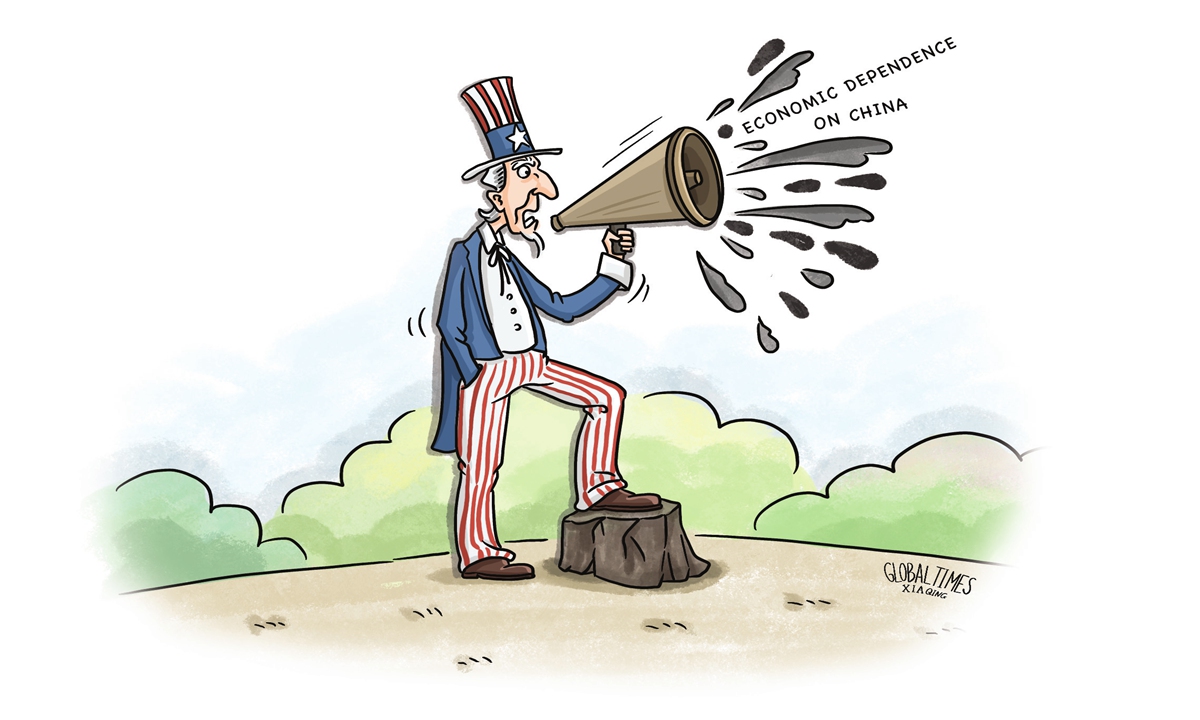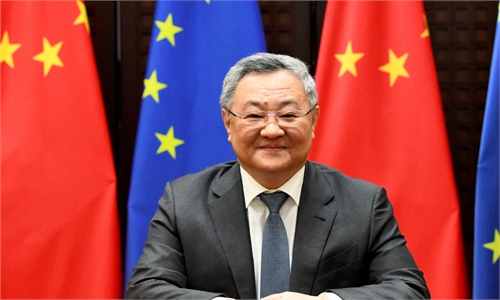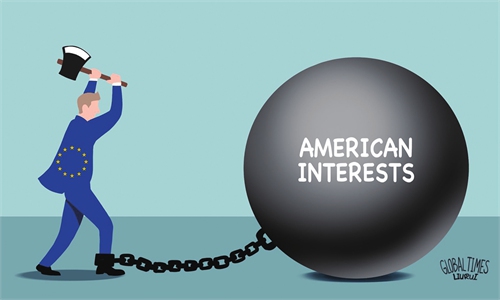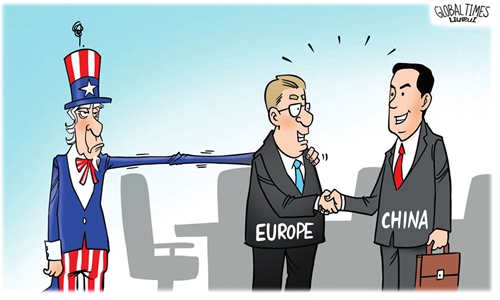
Illustration: Xia Qing/Global Times
At a time when Washington's political elites have brought the "China threat" theory to an extreme, trying to persuade European countries, including Germany, to "decouple" from the Chinese economy by making an issue of the so-called Europe's economic dependence on China, it's a little bit ironic that new study released by German institutions shows that, from the perspective of investment, the German economy is more "dependent" on the US than China.The study, jointly issued by four institutions including German Economic Institute (IW), suggested that China has played a more important role for German companies as investment destination and production base over the past decade, but, from a direct investment perspective, there has been no dependence on China, Deutsche Welle reported on Sunday. In 2020, Germany's direct investment in China accounted for about 7 percent of Germany's total outward investment, while its investment in the US accounted for about 27 percent.
While some Western media outlets use the "China threat" theory in their propaganda, why don't they hype about Germany's "dependence" on the US and advocate economic "decoupling" between the US and Germany with the excuse of economic security? The answer is obvious. The "economic dependence on China" narrative is a geopolitical tool that Washington's political elites use to defame China and support their alarmist "China threat" theory. Their ultimate goal is to put pressure on the EU to "decouple" from China. The US' narrative isn't a purely economic concept, but a geopolitical game against China.
The idea of "decoupling" is based on the misperception that an excessive reliance on the Chinese economy is a mounting source of economic security concern, therefore, in pursuit of economic security and self-reliance, global economies, including European countries, should reduce their economic dependence on China. But now, it turns out that even the US' narrative of "economic dependence" - the theoretical basis for economic "decoupling" from China - is a false proposition fabricated by anti-China forces, let alone Washington's "decoupling" push. European countries should avoid being stranded in a geopolitical trap set by Washington.
Compared to other markets, investing in China is more profitable: Germany's outward investment in China accounted for about 7 percent, but the profits flowing back from China accounted for 12-16 percent, Deutsche Welle reported, citing the new study. Although Germany's investment in the US accounted for about 27 percent, almost four times as large as that in China, the profits flowing back from the US is roughly equivalent to that from China. What deserves attention is the profit gap between the Chinese and US markets, not the US' narrative of "economic dependence on China" and its alarmist "China threat" theory.
Washington's political elites seem to be nervous because they cannot accept the fact that the US market is gradually losing its competitiveness. However, hyping "China economic threat" theory cannot help the US level up its economic competitiveness.
Although some Western media outlets hype the narrative of European countries' "reliance" on the Chinese economy, it should be pointed out that China-EU economic relations are equal, interdependent, and mutually beneficial for both sides.
German automaker Volkswagen announced at the Shanghai auto show last week it is investing around 1 billion euros (about $1.1 billion) in an electric car development and business center in Hefei - a city near Shanghai that's become an auto hub, the CNBC reported on April 21. China is the world's largest vehicle market. European companies cannot afford to lose the fast-growing Chinese market.
Despite Washington's "decoupling" push, European investment is still coming into China at a fast pace. Chinese officials have repeatedly stressed that foreign investment is welcome in China and the door to China will only open up further. China and EU have broad common interests in economic and trade cooperation. Such mutually-beneficial cooperation should not be disturbed by the "China economic threat" theory.
The author is a reporter with the Global Times. bizopinion@globaltimes.com.cn



